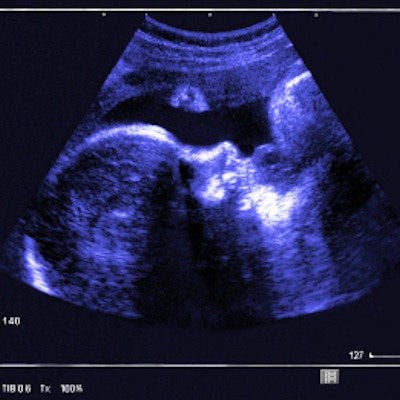
Myriad Genetics' Prequel Prenatal Screen cell-free DNA (cfDNA) test achieved high accuracy with no fetal fraction threshold, while maintaining a low test-failure rate of 1 in 1,000, in a study published in Ultrasound in Obstetrics & Gynecology.
The test is a customized whole genome sequencing method designed to have good performance in samples across fetal fraction levels in noninvasive prenatal testing (NIPT). Due to concerns about reduced performance at low fetal fraction levels, a threshold is sometimes set, and below that level, all tests are reported as failures.
"Test failures are clinically problematic because they require additional follow-up and delay the identification of at-risk pregnancies," Susan Hancock, a clinical product specialist at Myriad, and colleagues wrote (Ultrasound Obstet Gynecol, October 31, 2019).
In cases of NIPT failure, guidelines recommend invasive follow-up testing, such as chorionic villus sampling or amniocentesis -- the same management as if the result were positive, they added.
To assess the clinical performance of the Prequel Prenatal Screen, the researchers retrospectively analyzed data from more than 58,000 women, including 572 who tested positive for an aneuploidy or suspected aneuploidy. Pregnancy outcomes were sought for all screen-positive patients and for thousands of patients who screened negative.
With Prequel, 999 of every 1,000 women received a result after only one run. The clinical sensitivity and specificity levels were high and comparable to those reported for other commercial noninvasive prenatal screenings that have far higher test-failure rates, Myriad said.
"This is the largest study of Prequel to date and demonstrates that it achieves high accuracy with an industry-low test failure rate of 0.1% in a general population of pregnant women," said Dr. James Goldberg, chief medical officer of Myriad Women's Health, in a statement about the data. "For women who are overweight or have a compromised placenta, the findings are especially relevant because their pregnancies may have low fetal fraction."



















